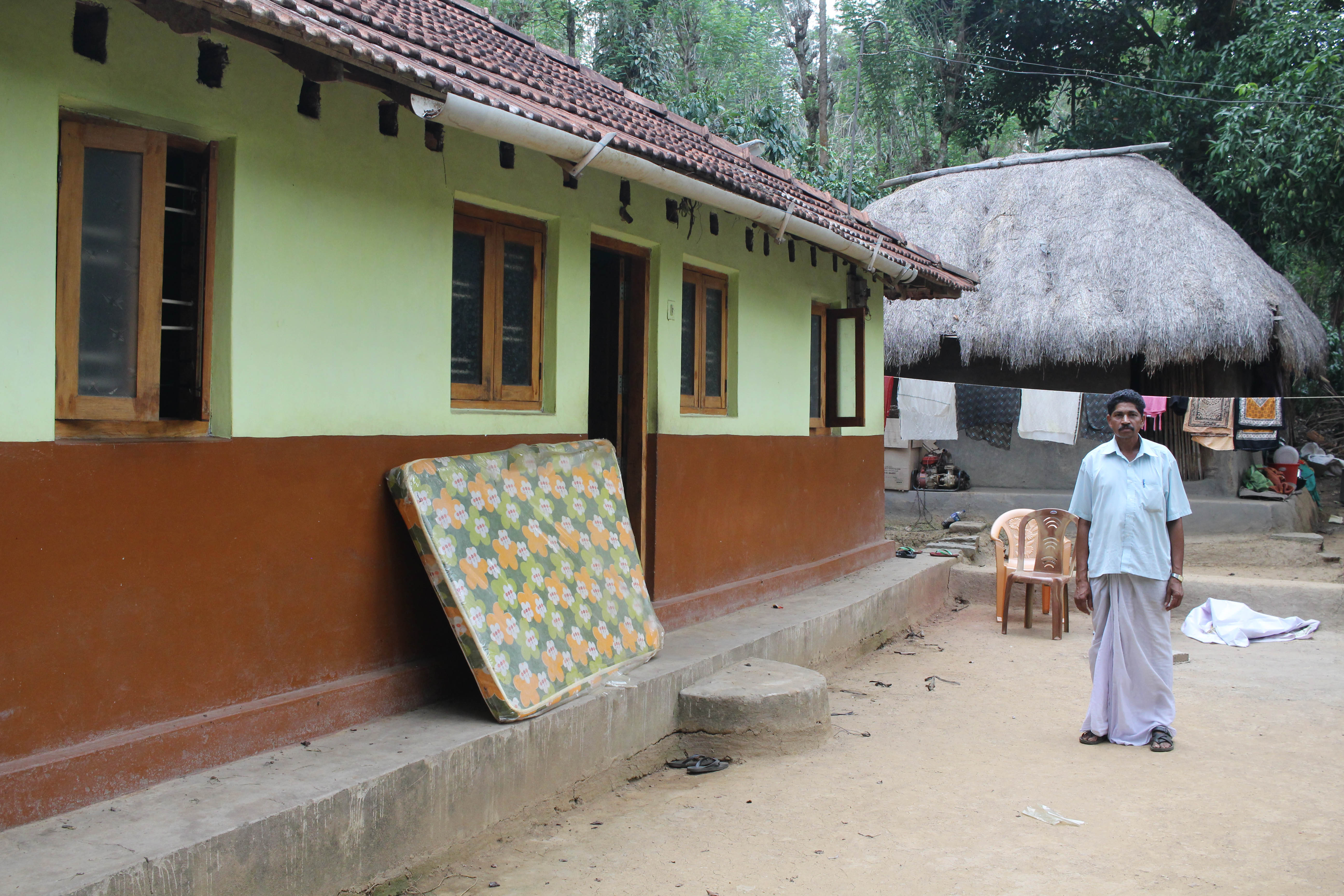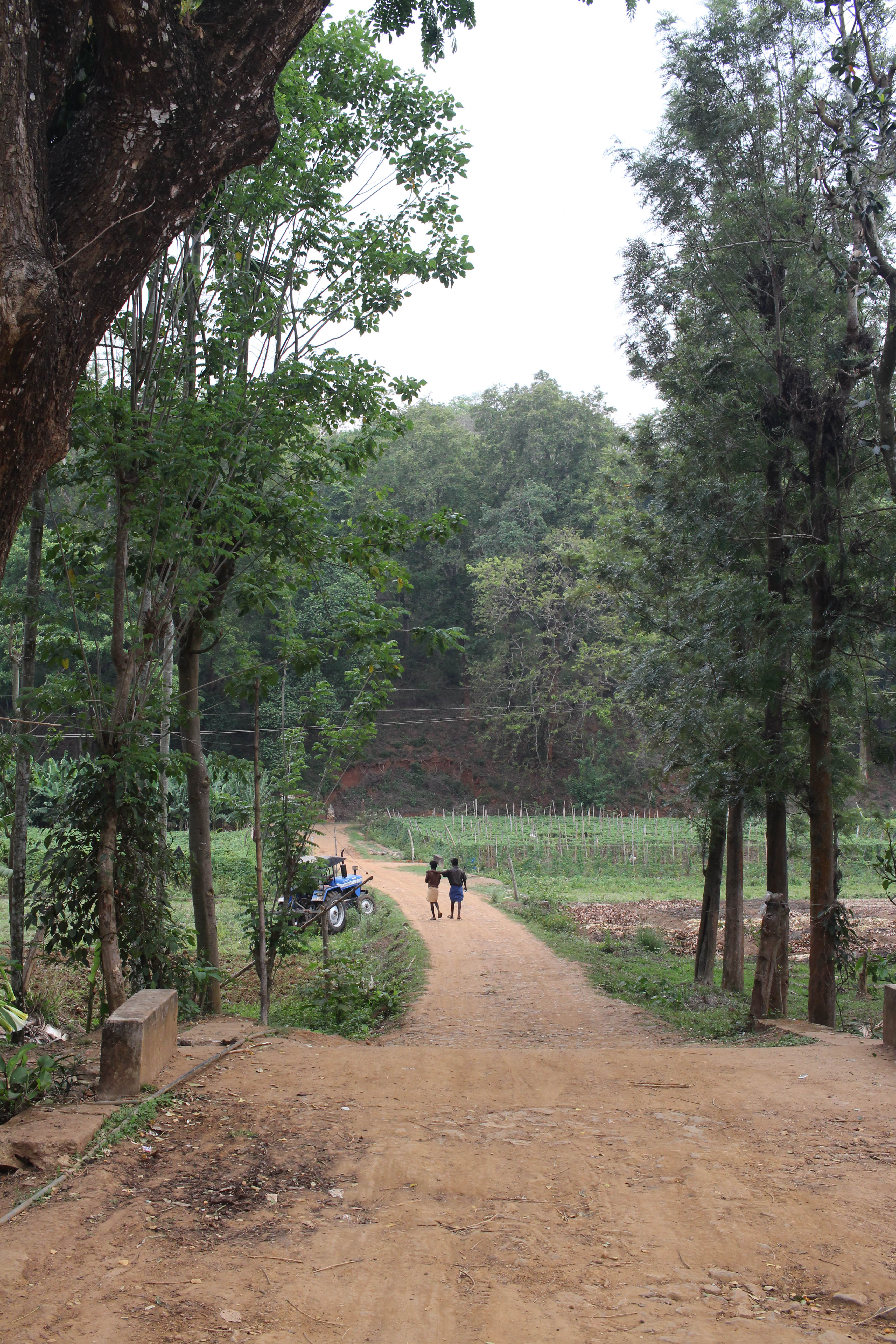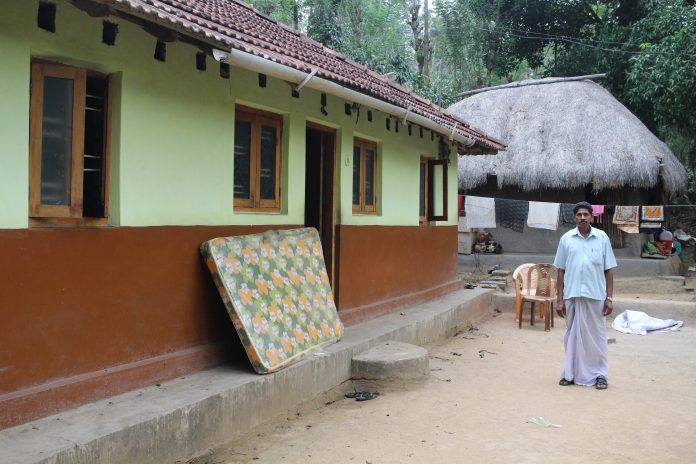By Amit Kumar, Twocircles.net
Gudalur, Tamil Nadu: The Indian experience of wildlife and forest conservation has been synonymous with forced evictions, mostly of tribals, from areas that have served as their homes and habitat for centuries. This is in part to the approach taken during the pre-Forest Rights Act, when conversation essentially meant removing all human population from the reserves. With the implementation of Forest Rights Act in 2006, the situation has changed for the better; at least a little. Now, there is a growing acknowledgement of the importance of letting forest dwellers and tribes live in the forests and provide them with the basic facilities apart from restoring their rights in the reserves.

However, for one community, the struggle for survival has been routed in a completely opposite direction: for the past 40 years, the Moundadan Chetty community has been trying to get out of the Mudumalai Tiger Reserves with little success. And their disenchantment with the Tamil Nadu government and the Central government is all the more understandable given that the Madras High Court had, in 2007, given a clearance to the community being relocated about 30 km away in Ayankoli and directed the government to complete the process in a year. However, 10 years later, the community is yet to see any progress on that front, and it has left them with a bitter taste.
Mudumalai Tiger Reserves is located in the Nilgiris District of Tamil Nadu state spread over 321 sq.km. at the tri-junction of three states, viz, Karnataka, Kerala and Tamil Nadu. It is an important part of the Nilgiris Biosphere Reserve, the first Biosphere Reserve in India and has a common boundary with Wayanad Wildlife Sanctuary (Kerala) on the West, Bandipur Tiger Reserve (Karnataka) on the North, and the Nilgiris North Division on the South and East and Gudalur Forest Division on the South West. The reserves are home to a variety of species such as the Tiger, Elephant, Indian Gaur, Panther, Sambar, Spotted Deer, Barking Deer, Mouse Deer, Mongoose, Jungle Cat and Hyena among others.
B Sukumaran, a lawyer at the Gudalur court and president of the Mudumalai Rehabilitation Committee, a people’s forum, says that the blame for this lies completely on the Tamil Nadu government and the forest department. “We are probably the only community in the country that agreed with the government when it decided to declare the Mudumalai Wildlife Sanctuary as a Tiger Reserve in 2007. We want the animals and forests to flourish, and do not want to be a hindrance to conservation efforts. Yet, we are stuck due to the callous nature of the government and forest department,” he says.
But beyond wildlife conservation, the needs of the community are pretty obvious and legitimate too. The Moundadan Chetty community is spread over seven villages in the Mudumalai Tiger Reserves, with Benne and Mudukulli their larger settlements. In fact, in these seven villages, the Chettys constitute about 70% of the population, while tribals like Kattunayakars and Kurumbas constitute the remaining. The fight for relocation goes back to the 60s when the community first asked the government to relocate them. “I have grown up among the struggle, and our demands are very simple,” says 50-year-old Sukumaran talking about the first protests in 1979. “Until the 70s, our community, which is listed as a Most Backward caste, was at par with other communities. However, over the past five decades, while we have been left behind others have progressed well: we have to walk miles to go to schools, hospitals. Our villages do not have roads, electricity remains a dream for most of our villages and there is always the threat of human-animal conflict. We have always been living in a sanctuary,” he adds.
The path to relocation: Land, money and guidelines
One of the main reasons why the Chetty community supported the formation of the Tiger Reserve was because it would fasten up the process of relocation to Ayankoli. But this came with its own side effects. Under the terms of the relocation, the families were given two choices: to either take a sum of Rs 10 lakh for resettlement or take land for land. In 2010 the National Tiger Conservation Authority (NTCA) accepted claims of 19 of the 20 beneficiaries who had opted for Rs 10 lakh cash compensation. To make matters worse, the NTCA rejected the list of the remaining 450-odd beneficiaries because “the list was prepared without complying with its guidelines, which says those above 18, unmarried daughters, widows and physically and mentally challenged persons within a family should be considered as separate families and be given cash compensation,” says Sukumaran.

In 2011, the authorities started a land survey of the relocation site and this process, which went on for nine months. In 2013, a fresh list of 800 families was given to the authorities. Again, in September 2015, 9.8 crore was allocated for 98 families (Rs 10 lakh each) as part of an initial allocation to see how the money was to be spent and a report to be submitted. But again six months later, instead of NTCA paying Rs 10 lakh, it was decided to split the amount in 60:40 ratio, meaning the NTCA would pay Rs 6 lakh and the TN government would pay Rs 4 lakh. So once again, the process got stalled.
Ready to relocate in a week but wait continues
Vidyasagar, a 39-year-old from the community, has been waiting his entire life to relocate. Currently working with the Forest Department, Vidyasagar met this correspondent when he was trying to reach Mudukulli village. The village of Mudukulli is about three km from Manvayal and about 20 km from Gudalur town. However, as we found out, getting inside the village is not child’s play. After Manvayal, as we tried to enter Mudukulli, we were told that we needed permission from the Range Officer as this was the core area of the Tiger Reserve. To make matters worse, a team of local CID followed us and categorically denied us permission to enter the village without prior authorisation. This, despite K Sukumaran, the leader of Mudukulli, ready to vouch for us. During the ensuing delay, Vidyasagar talked about how he had sent his child to a boarding school due to a lack of quality education facilities around Mudukulli. “As you can see, no one can just walk into our village. Outsiders need prior permission. At night, there are a lot of issues especially if we need medical attention. At least Mudukulli is only three km from the gate; other villages like Puliyalam are almost 10 km away and ambulances struggle to reach the village. You can imagine the condition of the road during monsoons,” he said.
It was after half an hour of casual conversations along with frantic phone calls that we were allowed to enter the village, but with one forest guard accompanying us during our visit. When we reached the home of K Sukumaran, he narrated how he has been fighting to relocate and get four acres of land in lieu of his holdings here. “We have been living in these forests for generations, but you can see what our condition is. We make do with growing root vegetables and some pepper. But we want to get out and start again. We want basic facilities like water, electricity and give our future generation a new start,” he says.
Forest Rights Act is not a factor for Chettys
It is inevitable that any conversation these days about forests and the rights of the people invokes the point of Forest Rights Act. However, in the case of the Chettys, it is a non-factor simply because one, their fight for relocation goes back much before the implementation of FRA and two, because they have seen the almost negligible impact of the Act on the lives of the tribals. “The tribals are content staying in the forests and there is no tension between tribals and Chettys on this front. We want to leave, they want to stay. However, we have also seen that even in their case, FRA has been hardly implemented, if at all, and that they continue to wait for facilities. So, we are not interested,” says B Sukumaran. When we visited Chembakolli, a village inhabited by Kattunayakars and Kurumbas near Mudukulli, the tribals also said they knew little about the Act. According to Bomman M, a resident of Chembakolli, “We don’t have much understanding of the Act. Some people say this Act is good, we’ll get a lot of facilities through the Act. But now, a law came and we submitted our claims in 2013, but nothing much happened. We’re here forever, everything for us is here, so we are definitely not leaving. But the Act has not made any difference to our lives.” His village does not receive electricity, he added.
Vidyasagar says he hopes that he can pack his bags soon. “We just need the basic facilities and want to help save the forests. I cannot understand why the government wants to delay this,” he adds. It is a question that the Chettys have been asking for two generations now.


